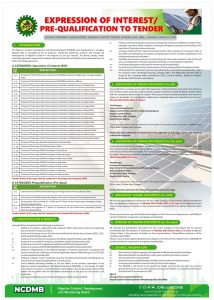Fuel subsidy is the transfer of economic resources by the government to consumers or producers of a good or service. The resultant incentive is to boost production or consumption of a commodity over what it would otherwise have been. However, critiques of energy subsidies believe otherwise. They say subsidies distort markets and discourage investments. Some have argued that subsidies exist where Government fails to implement programs to internalize uncontrolled costs in energy markets. Others argue that Government regulation creates a subsidy when it fails to set fuel prices equal to the marginal cost of production.
Like some other countries, Nigeria provides fuel subsidy (explicitly or implicitly), it’s justification vary from social engineering of the market and economic development to energy security. Fuel subsidy has been a growing liability to Nigeria’s budgetary allocations for almost four decades. I support the recent deregulation of the downstream sector of the petroleum industry – removal of petrol subsidies. When it comes to fuel pricing in our country, politics trumps economics.
In an interview I granted the guardian newspaper on March 23rd, 2014 captioned Fuel Subsidy Lacks Integrity, Should be Removed. I highlighted the need for the President Jonathan’s administration to jettison fuel subsidy due to alleged corruption associated with its implementation.
According to the Natural Resource Institute, an independent, non-profit organization, Domestic Crude Allocation (DCA) has become the engine of waste and revenue loss of the Nigeria National Petroleum Corporation (NNPC). The Nigerian Government allocates about 445,000 barrel of crude per day to NNPC, which it in turn sell to derive revenue. The DCA money spent by NNPC deliver poor value for money. A large portion of NNPC’s withholding is spent on fuel subsidy payments, which are vulnerable to misappropriation and excessive spending. KPMG the global audit firm for example found that in three years, NNPC paid itself roughly $6.6 billion to fund the subsidy on 15.6 billion liters of products that “apparently were not available to the Nigerian market.”
It is instructive to note, that recent investigations by the government and several petroleum subsidy litigations before our courts have further exposed massive graft by both government officials and private participants in the petroleum industry. Clearly, therefore the removal of fuel subsidy is sine qua non for energy security and economic growth. Take for example, the Mallam Ribadu’s Petroleum Revenue Special Task Force Report, indicated that NNPC withheld N1.983 trillion subsidies between 2006 and 2011. This amount represent almost 40 percent of the 2016 national budget.
Also, the Farouk M. Lawal led House of Representatives Ad hoc Committee on Subsidy Verification concluded that the subsidy regime, as operated between 2009 – 2011, were laden with colossal corruption and entrenched inefficiency. Subsidy claims made was actually not for consumed fuel. The committee went on to state that, contrary to the earlier official figure of subsidy payment of N1.3 trillion, the Accountant General of the Federation put forward a figure of N1.6 trillion, the Central Bank of Nigeria (CBN) N1.7 trillion while the committee established subsidy payment of N2,587.087 trillion as at 31st December, 2011,amounting to more than 900 percent over the appropriated sum of N245 billion.
Additionally, a subsequent report by the Presidential Committee on Verification and Reconciliation of Fuel Subsidy Payments, led by Mr. Aigboje Aig-Imoukhuede, revealed that in 2011, 197 subsidy transactions worth N232bn were illegitimate.
The recently released Forensic Audit of NNPC by Pricewaterhouse Coopers showed that fuel subsidy cost Nigeria almost $10 billion between January 2012 and July 2013. Over the years fuel subsidy has been 2 and 5 times the size of the federal education budget and up to7 times the health budget.
In February 2014, the CBN informed the Senate Finance Committee that NNPC needed to account for $20 billion, as CBN could only confirm receipt of $47 billion out of the $67 billion revenue between 2012 and July 2013. NNPC submission to the Senate Committee on Finance suggested that almost half of this non-remittance consisted of funds retained byNNPC for subsidy claims on imports of Premium Motor Spirit (PMS) and Dual Purpose Kerosine (DPK)
The Nigeria Extractive Industries Transparency Initiative (NEITI) independent audit report stated that, over N4 trillion has been paid as subsidy to marketers from 2006-2012. The breakdown of the subsidy shows that N2.197 billion was paid as subsidy in 2006. This rose to N236.64 billion in 2007 and N360.1 billion in 2008. In 2009 the country paid N198.1 billion as subsidy for petroleum products and in 2010 the subsidy payment rose to N416.45 billion . The payments skyrocketed to N1.9 trillion in 2011. Payments of oil subsidy declined to N690 billion in 2012 following the subsidy protests across the country in January of that year.
According to NEITI, “ removal of the subsidy will free over N700 billion annually which can be channelled to the provision of infrastructure like roads, education, health service, power, security, creation of jobs and basic benefits for the poor in the society” adding that the subsidy has failed to help Nigerians buy refined products much lower than the prevailing market price.
The most meaningful fundamental of change, powerful enough to confront corruption and mismanagement, may not be so much political, as the economic development and growth associated with the effort to improve it.
Felix Ayanruoh, Managing Partner/Global Head Energy, Infrastructure and Project Finance Group of a US and Abuja based Law Firm – Ruskat Partners.
Written by Felix Ayanruoh.






